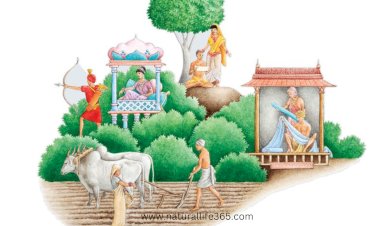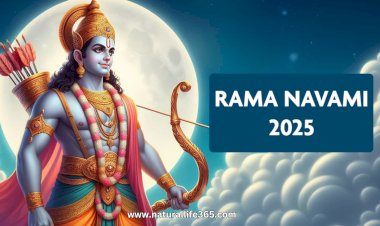Do Hindus Have a Bible?
Many people are familiar with the Bible as the central text of Christianity, but fewer know about the sacred texts of Hinduism. In this post, we delve into the question "Do Hindus have a Bible?" by exploring the rich and diverse canon of Hindu scripture, including the Vedas, Upanishads, and other key works.

You can listen to this blog here: Do Hindus Have a Bible?
Hinduism is one of the oldest and most diverse religions in the world, with a rich history of cultural and philosophical traditions. As such, it's no surprise that many people have questions about the various aspects of Hinduism, including its scriptures. One of the most common questions that people ask is whether Hindus have a Bible.
The short answer to this question is no, Hindus do not have a Bible in the same sense that Christians do. However, this answer can be a bit misleading without some context and explanation. That's why in this article, we'll take a closer look at the question of whether Hindus have a Bible, what Hindu scriptures are, and what role they play in Hinduism.
First, let's take a brief overview of Hinduism. Hinduism is a religion that originated in the Indian subcontinent and is practiced by millions of people around the world. It is a complex and diverse religion that encompasses a wide variety of beliefs, practices, and traditions. One of the defining features of Hinduism is its emphasis on the idea of dharma, or the moral and ethical order of the universe. This idea is reflected in many aspects of Hindu religious practice, including its scriptures.
With that brief introduction out of the way, let's dive into the topic of Hindu scriptures and their relationship to the Bible.
Understanding Hindu Scriptures
When we talk about Hindu scriptures, we're referring to a vast collection of religious texts and writings that have been compiled over thousands of years. These texts are central to Hindu religious practice and provide guidance and inspiration to millions of people around the world. But what exactly are Hindu scriptures, and what do they contain?
The term "Hindu scriptures" is somewhat of a catch-all term that encompasses a wide variety of texts, including hymns, stories, philosophical treatises, and more. These texts are written in a variety of languages, including Sanskrit, Tamil, and Hindi, and span many centuries of Hindu history. Some of the most well-known Hindu scriptures include:
- The Vedas: A collection of ancient hymns and rituals that are among the oldest texts in Hinduism.
- The Upanishads: Philosophical texts that explore the nature of reality and the self.
- The Bhagavad Gita: A dialogue between the god Krishna and the warrior Arjuna that explores the nature of duty and the meaning of life.
- The Puranas: A collection of stories and legends that explore the lives of various gods and heroes.
Each of these texts serves a different purpose within Hinduism, but all are considered sacred and are studied and revered by Hindus around the world.
It's important to note that there is no single "Bible" in Hinduism in the same way that there is in Christianity. Rather, Hindu scriptures are a diverse collection of texts that reflect the complexity and diversity of the Hindu religion. In the next section, we'll explore some of the key differences and similarities between Hindu scriptures and the Bible.
You may want to read 6 Books You Must Read To Understand Hinduism
Key Differences between Hindu Scriptures and the Bible
When comparing Hindu scriptures to the Bible, there are several key differences to consider. These differences can help us understand the unique spiritual and cultural perspectives of each tradition.
One major difference between Hindu scriptures and the Bible is the number of texts. While the Bible is a single book divided into two main parts, the Old Testament and the New Testament, Hindu scriptures are a vast collection of texts that include the Vedas, Upanishads, Puranas, and the Bhagavad Gita. These texts were written over thousands of years by different authors and reflect a wide range of philosophical and spiritual ideas.
Another difference between Hindu scriptures and the Bible is the historical context in which they were written. The Bible is largely focused on the history of the Israelites and the life and teachings of Jesus Christ. In contrast, Hindu scriptures are not focused on a particular historical event or figure but rather on spiritual and philosophical ideas that are seen as eternal and universal.
In terms of approach to spirituality, Hindu scriptures often emphasize the individual's quest for enlightenment or liberation from the cycle of birth and death (samsara), so they explore a wide variety of topics, including philosophy, ethics, mythology, and spirituality. In contrast, the Bible often focuses on the individual's relationship with a personal God and the importance of faith and obedience.
According to the language, the Bible was originally written in Hebrew and Greek, while Hindu scriptures were written in various languages, including Sanskrit, Tamil, and Hindi.
On the other hand, while there are many different interpretations of the Bible, there is a generally accepted canon of texts that are considered authoritative. In contrast, there is much more flexibility in how Hindu scriptures are interpreted, and there is no single canon of texts that is universally accepted.
Lastly, the role of the divine is also different in Hindu scriptures compared to the Bible. In Hinduism, the divine is often seen as an impersonal force or energy (Brahman) that pervades all creation. While there are many gods and goddesses in Hinduism, they are often seen as manifestations of this ultimate reality. In contrast, the Bible emphasizes the existence of a personal God who is involved in the lives of his followers and has a specific plan for humanity.
These differences highlight the distinct perspectives and values of Hinduism and Christianity. By understanding these differences, we can deepen our appreciation for the rich diversity of religious traditions and the insights they offer into the human experience.
Importance of Hindu Scriptures in Hinduism
Hindu scriptures are a rich and diverse collection of texts that hold great significance for followers of the Hindu faith. These texts offer spiritual and philosophical teachings, as well as guidance for ritual and worship practices. They also have a profound impact on Hindu culture and society.
One of the most important aspects of Hindu scriptures is the spiritual and philosophical teachings they offer. The Vedas, Upanishads, Puranas, and Bhagavad Gita all contain profound insights into the nature of reality, the purpose of human life, and the path to spiritual enlightenment. These teachings emphasize the importance of self-knowledge, compassion, and devotion, and offer guidance on how to achieve these qualities.
In addition to spiritual teachings, Hindu scriptures also guide ritual and worship practices. The Vedas, for example, contain hymns and prayers still recited by Hindus today in daily worship rituals. The Puranas and other texts also contain stories and legends that illustrate important spiritual concepts and serve as inspiration for devotional practices.
Beyond their spiritual and practical significance, Hindu scriptures also have a profound impact on Hindu culture and society. They are deeply intertwined with Hindu art, music, and literature, and have shaped the cultural identity of the Indian subcontinent. They have also inspired social movements and political ideologies, such as the philosophy of nonviolence (ahimsa) promoted by Mahatma Gandhi.
In conclusion, Hindu scriptures are an essential part of the Hindu tradition, offering profound spiritual teachings, practical guidance for worship and ritual, and a rich cultural legacy. They continue to inspire and guide millions of people around the world, and their significance extends far beyond the boundaries of the Hindu faith.
In conclusion, the question of whether Hindus have a Bible is a complex one that requires a nuanced understanding of both Hinduism and the Bible. While the Bible is a single book that contains the religious teachings and history of Christianity, Hindu scriptures are a vast collection of texts that reflect the diverse philosophical and spiritual traditions of Hinduism.
The Vedas, Upanishads, Puranas, and Bhagavad Gita are all essential texts in the Hindu tradition, offering profound insights into the nature of reality, the purpose of human life, and the path to spiritual enlightenment. These texts have also had a profound impact on Hindu culture and society, shaping the art, music, literature, and political ideologies of the Indian subcontinent.
While there are certainly differences between Hindu scriptures and the Bible, it is important to appreciate the unique perspectives and values of each tradition. By doing so, we can deepen our understanding of the diversity of human religious experience and find common ground for dialogue and mutual respect.
Ultimately, the question of whether Hindus have a Bible is less important than the insights we can gain from exploring the rich traditions and teachings of Hinduism. Whether we are seeking spiritual guidance, cultural inspiration, or simply a deeper understanding of the human experience, these texts offer valuable insights that can enrich our lives and broaden our horizons.
You can also read Why India's New Ram Temple is So Important?
If you value these free online resources provided by Natural Life 365, please consider supporting my website by sharing the blogs ![]()









































